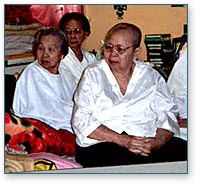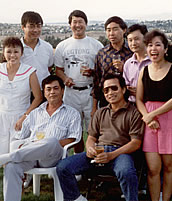Continued from page 1
Access to Medical Care
 Many refugees work in jobs that pay minimum wage or less and so do not receive health care benefits. Others are suspicious of Western medicine and uncomfortable with Western medical practices. Many have limited knowledge of diseases. As a result, they often do not receive preventative care but rather seek medical care only in an emergency or in the late stages of a disease when it is incurable. Some Southeast Asian Americans prefer folk medicine and remedies available from ethnic herbal shops and indigenous healers. Nonprofit organizations have worked to educate the population about preventative care, as well as teaching about the necessity of being screened and tested for diseases. They attempt to educate refugees about the medical causes of the diseases, displacing misconceptions that they may have about diseases such as cancer. Many refugees work in jobs that pay minimum wage or less and so do not receive health care benefits. Others are suspicious of Western medicine and uncomfortable with Western medical practices. Many have limited knowledge of diseases. As a result, they often do not receive preventative care but rather seek medical care only in an emergency or in the late stages of a disease when it is incurable. Some Southeast Asian Americans prefer folk medicine and remedies available from ethnic herbal shops and indigenous healers. Nonprofit organizations have worked to educate the population about preventative care, as well as teaching about the necessity of being screened and tested for diseases. They attempt to educate refugees about the medical causes of the diseases, displacing misconceptions that they may have about diseases such as cancer.
Bilingual educational materials and outreach workers have been crucial in this process. It is also crucial that medical professionals serving these communities learn about the history of Southeast Asians, are sensitive to their patients’ world view, and appreciate the value of balancing traditional and Western medical practices. Health care studies that focus on long-term health care issues for this population, such as cancer and HIV/AIDS, are also vital. Preliminary studies of Southeast Asian Americans indicate high incidences of cervical cancer among females and lung cancer among males, which shows that much more population-specific research needs to be conducted. 

|


